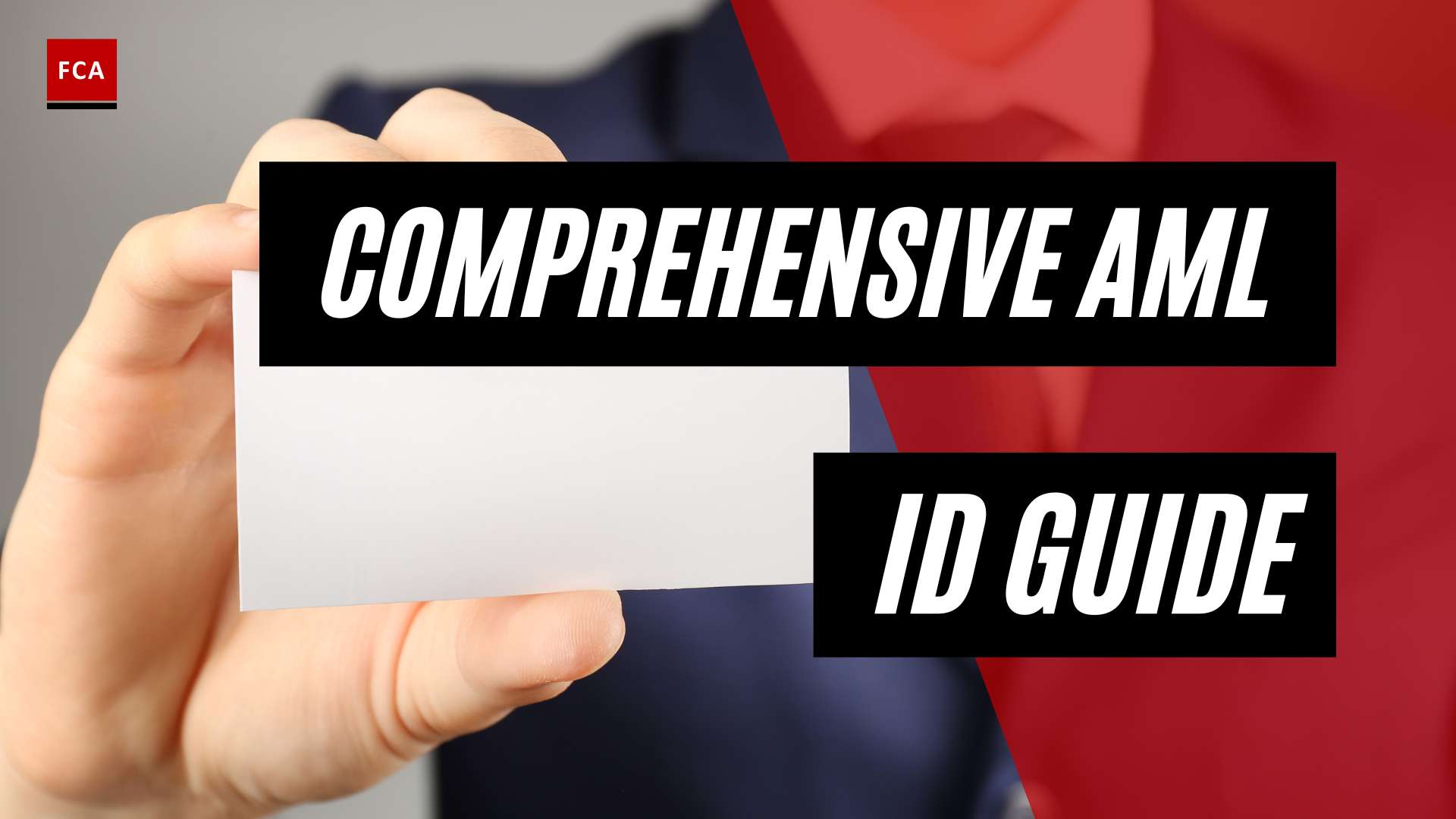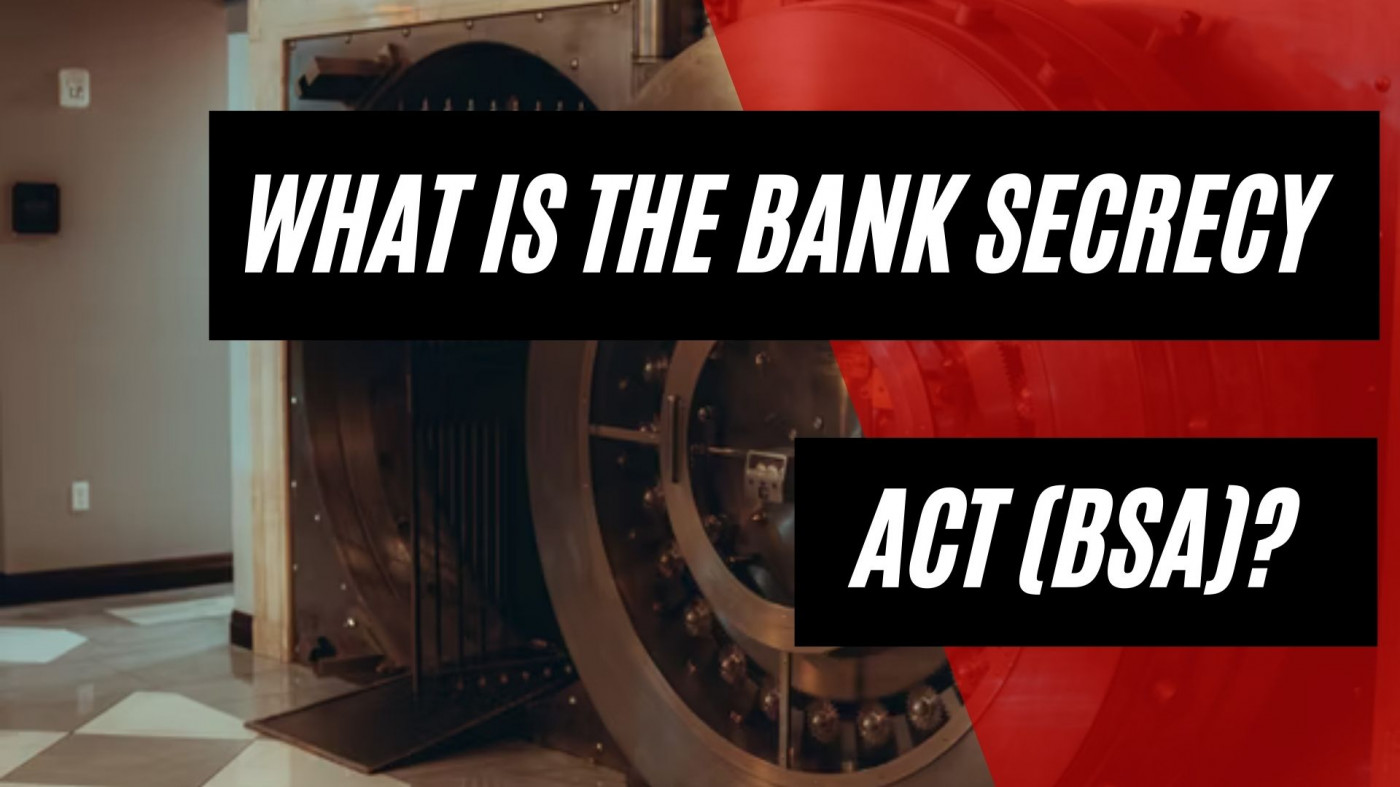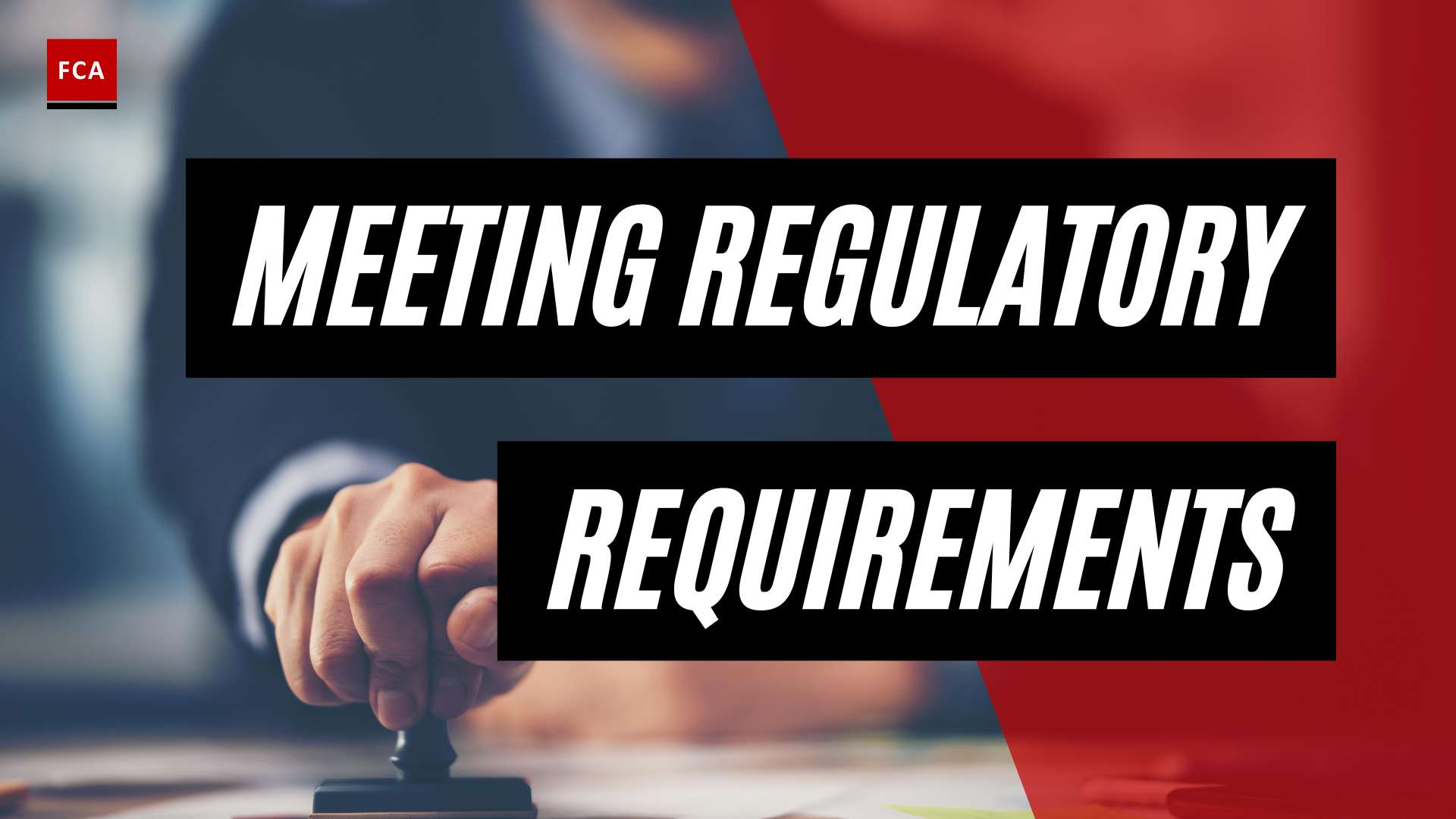Understanding AML Compliance for NGOs
When it comes to Anti-Money Laundering (AML) compliance for NGOs, it is crucial to recognize the unique risks they face and the aims of the regulations put in place to mitigate these risks.
Risks Faced by NGOs
NGOs, or Non-Governmental Organizations, can be vulnerable to illicit financial activities due to their nature and operations. Some of the risks faced by NGOs include the diversion of funds, abuse of programming, false representation, and affiliation with terrorist groups (Sanctions.io). Criminals may attempt to exploit the good intentions and resources of NGOs for their own illicit purposes, making it imperative for these organizations to have robust AML measures in place.
Aims of AML Regulations for NGOs
AML regulations for NGOs serve several crucial aims. These regulations are designed to prevent NGOs from being misused by terrorist organizations and to protect the integrity of the financial system. By implementing AML measures, NGOs can contribute to the global effort against money laundering and terrorist financing.
The key objectives of AML regulations for NGOs include:
-
Due Diligence Measures: AML regulations require NGOs to conduct due diligence to identify and understand the true purpose of the organization. This helps to ensure that NGOs are operating legitimately and not being exploited for illicit activities.
-
Transparent Record-Keeping: NGOs are required to maintain transparent and accurate financial records. This includes documenting and reporting any suspicious activities or transactions that may indicate potential money laundering or terrorist financing.
-
Establishment of AML Procedures: NGOs must establish comprehensive AML procedures to prevent, detect, and report suspicious activities. This includes training staff on red flags for suspicious transactions, reporting any suspicious activities to the appropriate authorities, and designating a compliance officer responsible for overseeing AML efforts.
It is important to note that while AML regulations are necessary to safeguard against illicit activities, they can also have unintended consequences for NGOs. These consequences include difficulties in accessing banking services and encountering risk-averse approaches from financial institutions (CGDev). However, striking a balance between AML compliance and facilitating the vital work of NGOs remains an ongoing challenge.
By understanding the risks faced by NGOs and the aims of AML regulations for these organizations, stakeholders can work towards implementing effective AML measures that protect their operations and maintain the integrity of the financial system.
Due Diligence Measures for AML Compliance
To ensure AML compliance for NGOs, it is essential to implement robust due diligence measures. These measures help organizations assess and mitigate the risk of money laundering, terrorist financing, and other financial crimes. Key due diligence measures for AML compliance in NGOs include:
Determining the True Purpose of the Organization
NGOs must clearly define and document their mission, activities, and objectives. Determining the true purpose of the organization involves conducting thorough background checks on key individuals involved in the organization, such as founders, directors, and executives. This process helps to ensure that the organization’s activities align with its stated purpose and that it is not being used as a front for illicit activities.
Identifying Locations and Organizational Structure
NGOs operate in various locations and often have complex organizational structures. It is crucial to identify and document all the locations where the organization operates, including branches, subsidiaries, and partner organizations. Understanding the organizational structure helps in identifying potential vulnerabilities and assessing the risk associated with each entity.
Understanding Volunteer and Donor Base
NGOs heavily rely on volunteers and donors to support their work. Therefore, it is important to conduct due diligence on volunteers and donors to ensure that their contributions are legitimate and not associated with illicit funds. This includes verifying the identities of volunteers and donors, conducting background checks, and monitoring transactions for any suspicious activity. NGOs should also have clear policies and procedures in place to address red flags and suspicious behavior.
Additional Measures in High-Risk Countries
NGOs operating in high-risk countries or regions should take additional due diligence measures to mitigate the elevated risk. This includes conducting enhanced due diligence on donors, partners, and other entities involved in the organization’s activities. Enhanced due diligence may involve more extensive background checks, ongoing monitoring of transactions, and heightened scrutiny of financial records.
Implementing these due diligence measures helps NGOs establish a strong framework for AML compliance. By understanding the true purpose of the organization, identifying locations and organizational structure, comprehending the volunteer and donor base, and implementing additional measures in high-risk countries, NGOs can effectively mitigate the risk of financial crimes and ensure compliance with AML regulations.
For more information on AML compliance for NGOs and charities, refer to our articles on aml compliance for ngos and aml compliance for charities.
Importance of Transparent Record-Keeping
In the realm of AML compliance for NGOs and charities, transparent record-keeping plays a critical role. It involves the reporting and documentation of all suspicious activity and transactions while ensuring the availability of adequate financial records. By maintaining transparent records, NGOs can demonstrate their commitment to combating money laundering and terrorist financing, and also fulfill regulatory requirements.
Reporting and Documenting Suspicious Activity
NGOs must establish robust processes for reporting and documenting suspicious activity. This includes promptly identifying and reporting any transactions or behavior that deviate from the normal patterns or raise suspicions. By promptly documenting and reporting such activities, NGOs can contribute to the overall efforts of preventing illicit financial activities.
Transparency in reporting suspicious activities helps authorities and regulatory bodies take appropriate action. It also acts as a deterrent for those attempting to exploit NGOs for money laundering or terrorist financing purposes. NGOs should establish clear internal guidelines and procedures for recognizing and reporting suspicious transactions to ensure consistency.
Providing Adequate Financial Records
Maintaining accurate and up-to-date financial records is crucial for NGOs to demonstrate transparency and accountability. These records help in assessing the legitimacy of the organization’s activities and tracking the flow of funds. NGOs should keep records of all financial transactions, including donations, grants, and expenses.
Adequate financial records provide a clear audit trail and facilitate the identification of potential red flags. These records may include bank statements, receipts, invoices, and any other relevant financial documentation. NGOs should also ensure that their financial records are easily accessible and organized for efficient monitoring and reporting.
By prioritizing transparent record-keeping, NGOs can enhance their ability to detect and prevent money laundering and terrorist financing activities. It also helps establish trust with donors, stakeholders, and regulatory bodies by demonstrating a commitment to compliance and ethical practices.
For NGOs to effectively combat money laundering and terrorist financing, it is essential to implement comprehensive AML procedures. These procedures encompass various aspects, such as customer due diligence, transaction monitoring, and ongoing AML training for staff.
Establishing AML Procedures for NGOs
To ensure compliance with anti-money laundering (AML) regulations, NGOs must establish robust procedures and protocols. This includes training staff on red flags for suspicious transactions, reporting suspicious activities, and appointing a compliance officer who is knowledgeable about AML regulations.
Training Staff on Red Flags for Suspicious Transactions
NGOs should provide comprehensive training to staff members on identifying red flags for suspicious transactions. This training aims to enhance their understanding of potential indicators of money laundering or terrorist financing activities. By educating staff about these red flags, NGOs can empower them to recognize and report suspicious activities promptly.
Training sessions should cover various aspects, including the identification of unusual transaction patterns, large and unexplained cash deposits or withdrawals, frequent transfers to high-risk jurisdictions, and transactions involving politically exposed persons (PEPs). Staff members should also be trained to identify potential signs of structuring or layering, such as multiple transactions just below reporting thresholds. By equipping staff with the necessary knowledge, NGOs can create a vigilant and proactive environment in combating money laundering and financial crime.
Reporting Suspicious Activities
NGOs play a critical role in detecting and reporting suspicious activities to the appropriate authorities. It is essential to establish clear reporting procedures and channels to ensure that staff members know how and when to report such activities.
When a staff member encounters a suspicious transaction or activity, they should be encouraged to report it promptly to the designated compliance officer or department within the NGO. The compliance officer can then assess the report, conduct further investigations if necessary, and determine whether it should be escalated to the relevant regulatory or law enforcement agencies.
By fostering a culture of reporting suspicious activities, NGOs can contribute to the collective effort in combating money laundering and terrorist financing. Timely reporting is crucial in preventing illicit funds from entering the financial system and supporting unlawful activities.
Role of a Compliance Officer
A dedicated compliance officer is vital for ensuring effective AML procedures within NGOs. The compliance officer should have a comprehensive understanding of AML regulations and be responsible for overseeing the organization’s adherence to these regulations.
The compliance officer’s role involves developing and implementing AML policies and procedures, conducting risk assessments, and providing ongoing training to staff members. They are also responsible for staying updated on the latest AML developments, including changes in regulations and emerging trends in money laundering and financial crime.
Furthermore, the compliance officer acts as a point of contact for staff members, providing guidance and support on AML-related matters. They are responsible for reviewing and investigating suspicious activity reports, liaising with regulatory authorities, and ensuring the organization’s compliance with AML regulations.
By having a dedicated compliance officer, NGOs can establish a strong framework for AML compliance, fostering a culture of vigilance and integrity throughout the organization.
In summary, establishing AML procedures for NGOs requires comprehensive training for staff on red flags for suspicious transactions, reporting mechanisms for suspicious activities, and the appointment of a knowledgeable compliance officer. These measures are essential for creating a robust AML framework that helps NGOs mitigate the risks associated with money laundering and terrorist financing activities.
Challenges Faced by NGOs in AML Compliance
While Anti-Money Laundering (AML) policies are essential for combating illicit financial activities, NGOs often face unique challenges in adhering to these regulations. These challenges can have unintended consequences and hinder the operations of these organizations. Here are some of the main challenges faced by NGOs in AML compliance:
Unintended Consequences of AML Policies
The broad scope and strict enforcement of AML regulations have had unintended consequences for NGOs. Banks, concerned about compliance with AML regulations, have sometimes made it difficult for NGOs to manage their finances or complete international transactions. Some NGOs have reported unexpected account closures or denials of financial services by banks, creating obstacles in their operations (CGDev).
Difficulties in Accessing Banking Services
NGOs often face difficulties in accessing banking services, particularly in conflict-affected regions, due to the strict enforcement of AML policies. This can hamper the delivery of humanitarian aid and support to vulnerable populations in these areas (CGDev).
Risk-Averse Approaches of Financial Institutions
Financial institutions, perceiving NGOs as high-risk entities, have adopted risk-averse approaches when dealing with them. This cautious approach can lead to challenges for NGOs in opening and maintaining bank accounts. Difficulties in accessing financial services can disrupt essential operations and hinder the ability of NGOs to carry out their charitable activities (CGDev).
Resorting to Less Transparent Financial Practices
In response to the challenges posed by AML regulations, some NGOs have resorted to less transparent financial practices. These practices may include carrying large amounts of cash or utilizing informal financial channels. However, such practices increase the risk of financial mismanagement, fraud, and diversion of funds. They also undermine the transparency and accountability of NGOs, which are essential principles for maintaining public trust (CGDev).
To address these challenges, it is crucial for NGOs, regulators, and financial institutions to collaborate and find solutions that balance the need for AML compliance with the effective operation of NGOs. Clear guidance and understanding of AML requirements, as well as improved communication and cooperation between all stakeholders, can help alleviate these challenges and ensure that NGOs can continue their important work while adhering to AML regulations.
International Standards and Guidance
To effectively combat money laundering and terrorist financing, NGOs should align their AML policies with international standards and guidance, particularly those provided by the Financial Action Task Force (FATF) (FFIEC). While there is no specific international standard for AML in the NGO sector, the FATF sets the framework for AML regulations and provides valuable recommendations for risk management and compliance.
Role of Financial Action Task Force (FATF)
The Financial Action Task Force (FATF) is an intergovernmental organization that develops and promotes international standards and policies to combat money laundering, terrorist financing, and other threats to the integrity of the global financial system. The FATF has a significant influence on shaping AML regulations and guidelines that are adopted by countries worldwide.
The FATF’s recommendations serve as a foundation for AML policies and practices across various sectors, including NGOs and charities. While the FATF has not clearly defined its position on AML risk in the NGO sector, their guidance remains relevant for NGOs to establish effective AML procedures and mitigate the risk of financial crime.
Aligning AML Policies with FATF Recommendations
NGOs should strive to align their AML policies with the FATF recommendations to ensure comprehensive risk management and compliance with global AML regulations. While the FATF advocates for AML rules to be “risk-based,” specific protections under Recommendation 8 may not always apply to NGOs, creating some ambiguity in the application of AML measures to the sector (Philea).
By incorporating the following key elements recommended by the FATF, NGOs can establish a robust AML program:
- Risk assessment: Conduct a thorough risk assessment to identify and understand the money laundering and terrorist financing risks specific to the NGO’s activities, jurisdictions, and relationships.
- Customer due diligence: Implement appropriate due diligence procedures to verify the identity of donors, beneficiaries, and other relevant parties, ensuring transparency and accountability.
- Transaction monitoring: Establish mechanisms to monitor financial transactions and detect any suspicious activities that may indicate potential money laundering or terrorist financing.
- Record-keeping: Maintain accurate and transparent records of financial transactions, donor information, and other relevant documentation to support AML compliance efforts.
- Ongoing staff training: Regularly provide training to staff members on AML policies, procedures, and red flags for suspicious transactions, fostering a culture of compliance within the organization.
Aligning AML policies with the FATF recommendations helps NGOs enhance their ability to detect and prevent illicit financial activities, safeguard their reputation, and maintain the public’s trust. It is essential for NGOs to stay informed about evolving AML regulations and adapt their compliance measures accordingly to effectively protect their cause and mission.
Building an Effective AML Program for NGOs
To effectively combat money laundering and ensure regulatory compliance, NGOs need to establish a robust AML (Anti-Money Laundering) program. This program should encompass various components, including customer due diligence, transaction monitoring, reporting suspicious activities, and ongoing AML training for staff members.
Customer Due Diligence
Customer due diligence is a crucial component of an effective AML program for NGOs. It involves verifying the identities of donors, volunteers, and other individuals involved in financial transactions. NGOs should implement thorough due diligence procedures, especially for international transactions, to prevent financial crimes such as money laundering or terrorist financing. By conducting due diligence, NGOs can ensure compliance with relevant laws and regulations and mitigate the risk of illicit financial behavior.
Transaction Monitoring
Transaction monitoring is another vital aspect of an AML program for NGOs. It involves the ongoing surveillance and analysis of financial transactions to detect and report any suspicious activities. NGOs should implement systems and processes to monitor transactions, identify patterns, and evaluate potential risks. Transaction monitoring helps to identify and prevent money laundering activities within the organization, ensuring regulatory compliance and maintaining the integrity of the nonprofit sector.
Reporting Suspicious Activities
NGOs should establish clear protocols for reporting suspicious activities. Staff members should be trained to recognize red flags and know how to escalate concerns appropriately. Reporting suspicious activities to the relevant authorities, such as the appropriate financial intelligence unit or law enforcement agency, is crucial for combating money laundering within NGOs. Timely and accurate reporting helps to prevent illicit financial activities and protect the organization’s reputation.
Ongoing AML Training for Staff
Continuous education and training are essential for maintaining an effective AML program within NGOs. Staff members should receive regular training on AML policies, procedures, and best practices. Training programs should cover topics such as identifying red flags for suspicious transactions, understanding the organization’s reporting obligations, and the role of each staff member in ensuring AML compliance. Ongoing training ensures that staff members remain up to date with the latest AML regulations and enhances their abilities to detect and prevent money laundering activities.
By implementing a comprehensive AML program that includes customer due diligence, transaction monitoring, reporting suspicious activities, and ongoing training for staff, NGOs can effectively protect their organizations from the risks associated with money laundering. It is crucial for NGOs to align their AML policies with international standards and guidance provided by organizations like the Financial Action Task Force (FATF). This alignment ensures effective risk management and compliance with global AML regulations, bolstering the integrity of the nonprofit sector.
Remember, an effective AML program requires a collective effort from all stakeholders involved in the NGO’s operations. By fostering a culture of compliance and vigilance, NGOs can contribute to a safer and more transparent financial environment while fulfilling their missions to make a positive impact in the world.








